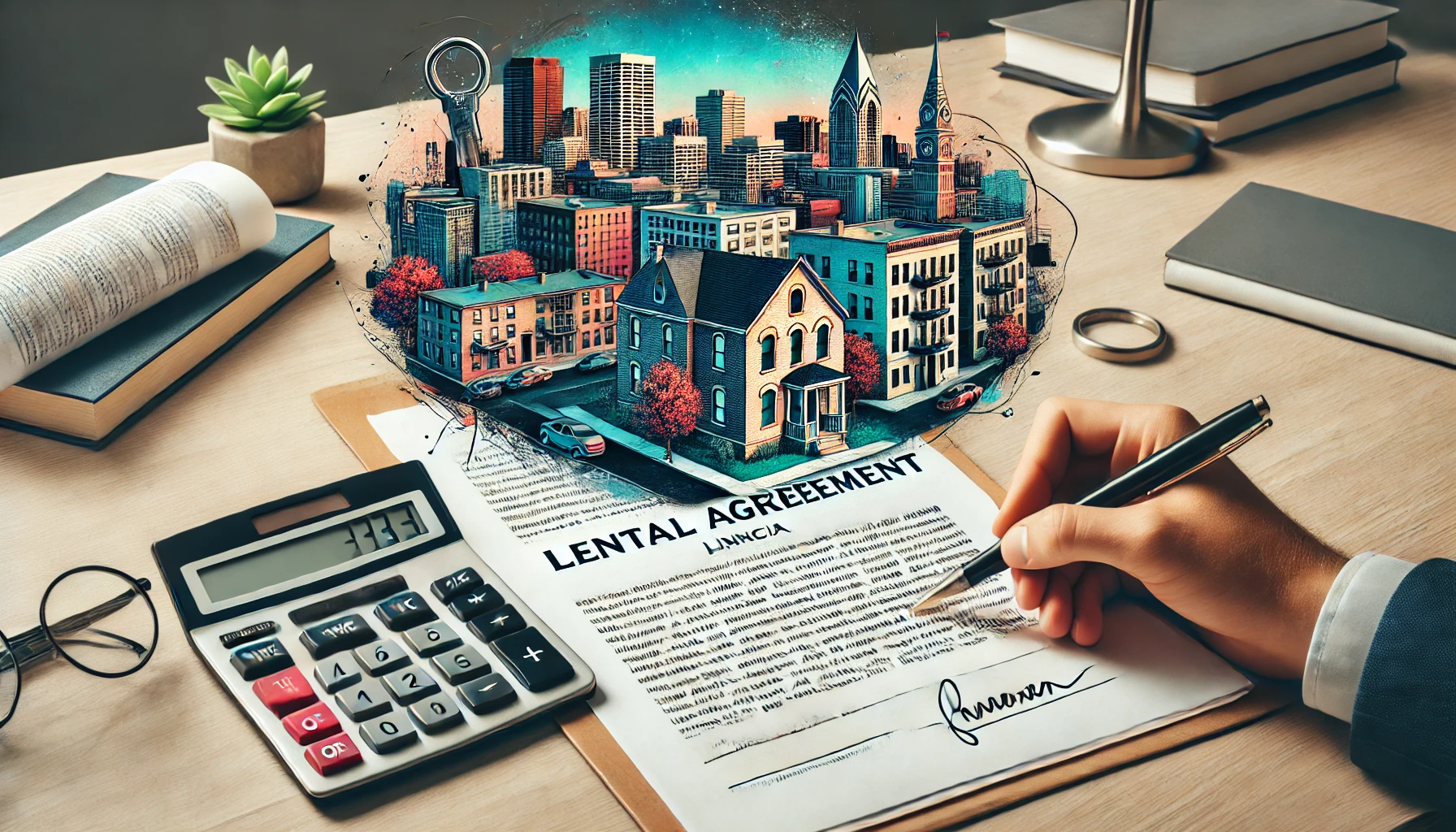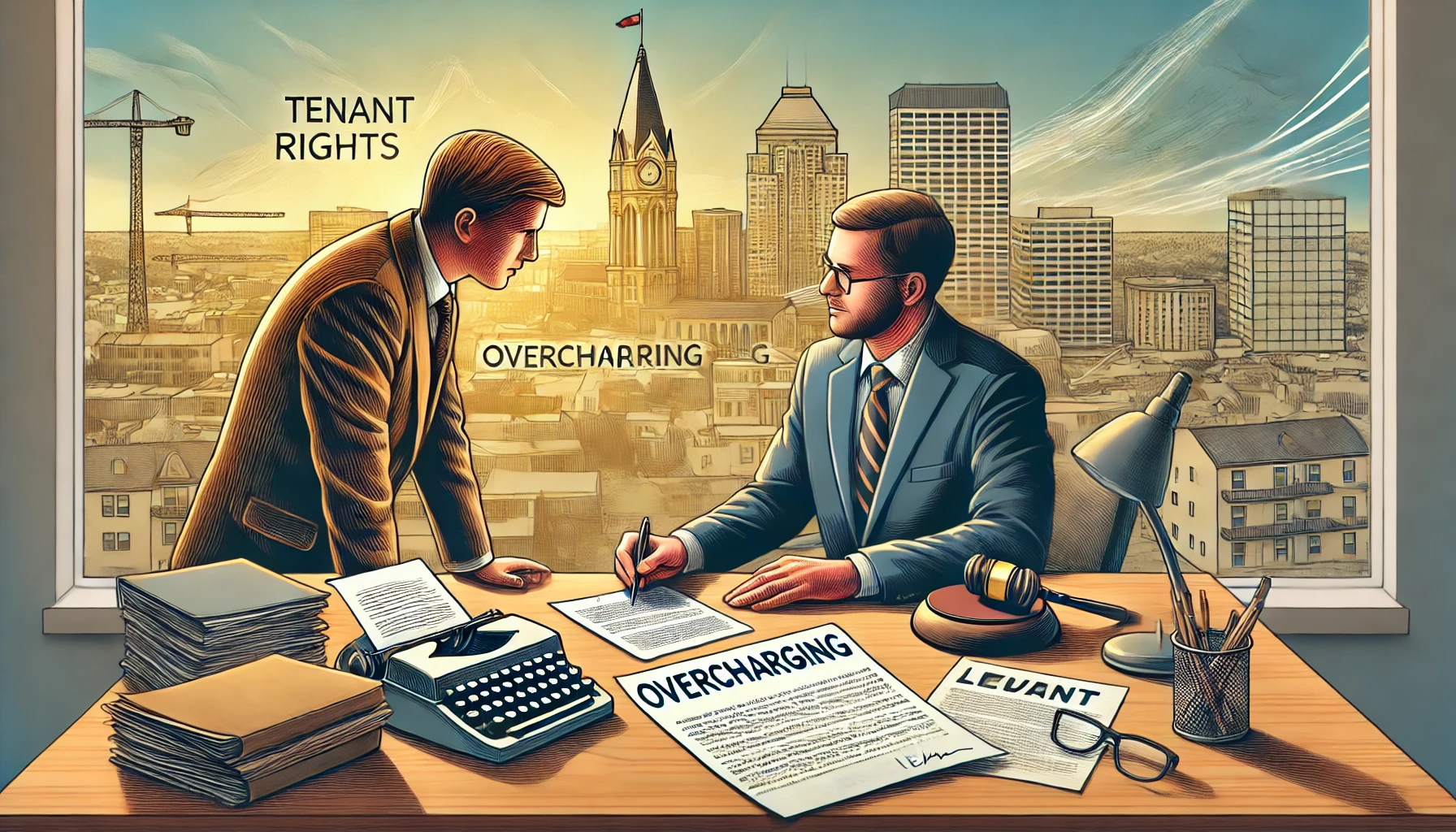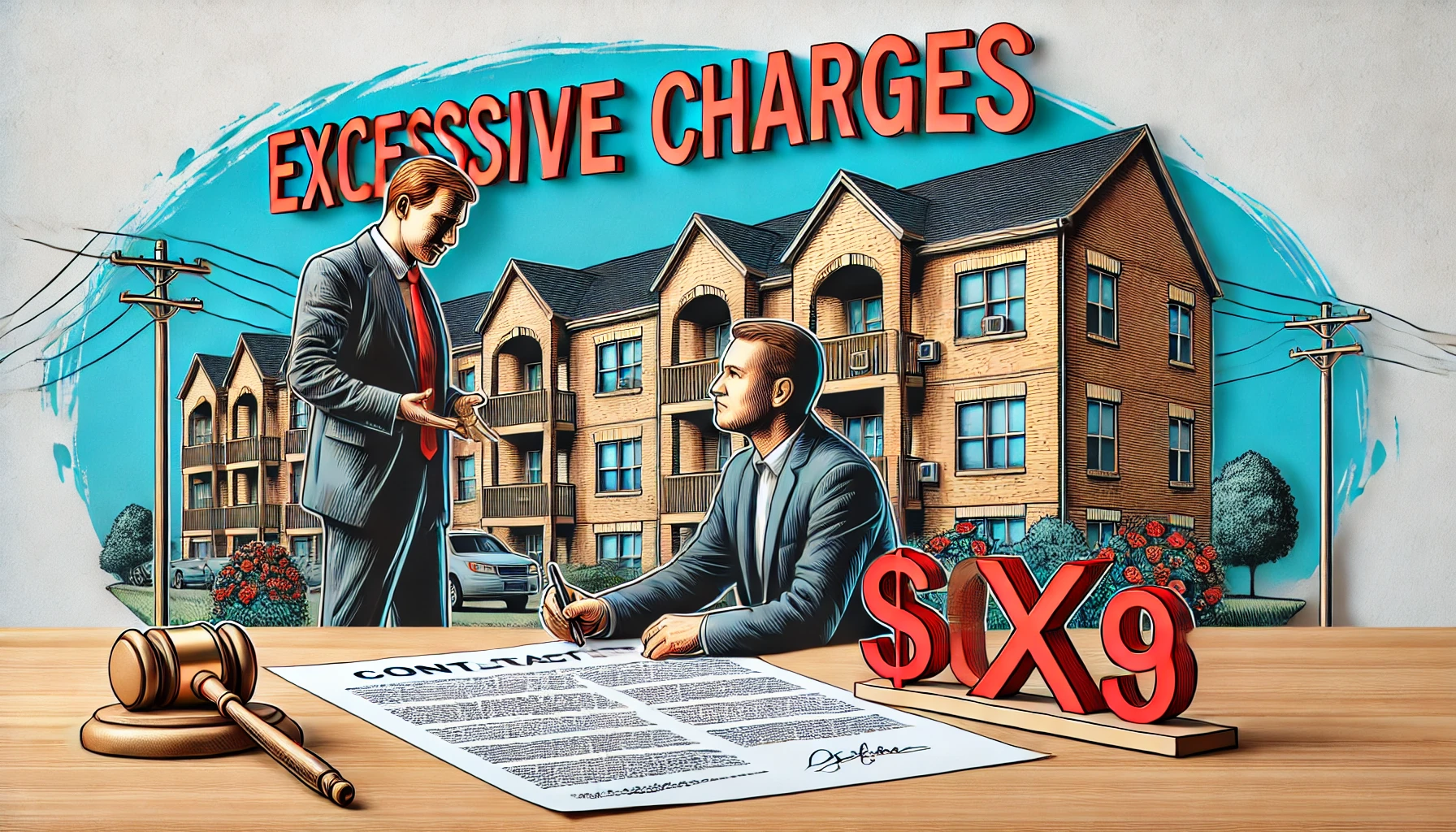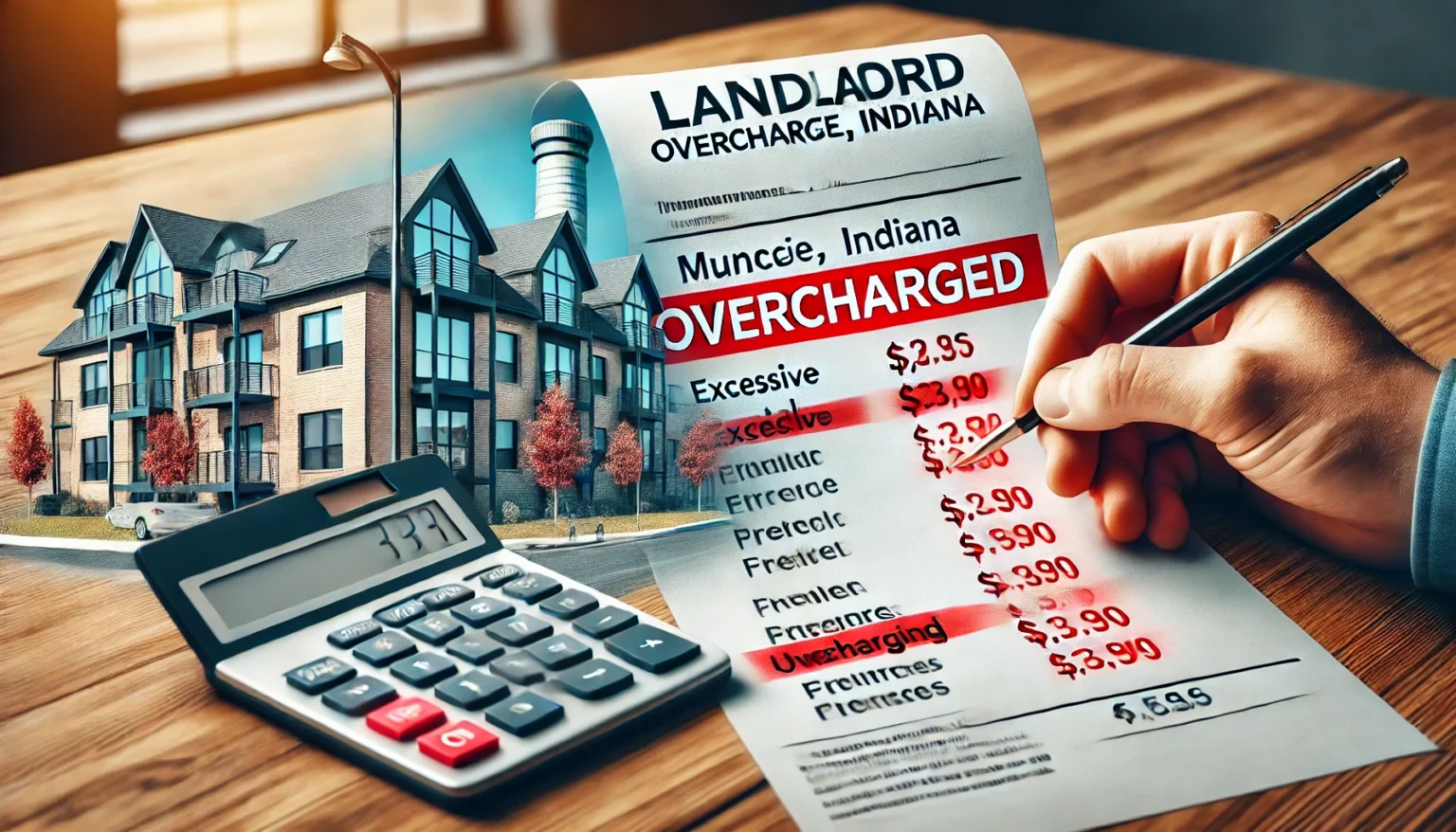Renting a home or apartment in Muncie, Indiana, involves a clear relationship between landlords and tenants. However, disputes about Muncie Indiana landlord overcharging fees can arise, often leaving tenants confused or unfairly treated. This article provides a detailed, easy-to-understand guide to Muncie Indiana landlord overcharging fees, following the latest information in 2024, and offers actionable advice for tenants.
Legal Protections for Tenants in Indiana
In Indiana, tenant rights are protected under Indiana Code Title 32, Article 31. This law sets the boundaries for landlord conduct, particularly regarding fees.
Security Deposits:
- Landlords must adhere to limits on the amount of security deposit they can collect (usually no more than two months’ rent).
- Deposits must be returned within 45 days of a tenant moving out, minus justified deductions for damages or unpaid rent.
Transparency in Lease Agreements:
- All fees (e.g., late fees, cleaning fees, and repair costs) must be clearly outlined in the lease agreement.
- Fees that are not specified in the lease are generally not enforceable.
Normal Wear and Tear:
Landlords cannot charge tenants for minor wear and tear, such as faded paint or carpet wear, which occurs through regular use of the property.
Common Types of Overcharging
While most landlords comply with the law, some may impose fees that are unreasonable or outright illegal. These include:
Excessive Security Deposits:
- Demanding more than two months’ rent as a security deposit.
- Failing to return the deposit or making unjustified deductions without evidence.
Late Payment Fees:
Indiana law allows landlords to charge late fees, but these must be reasonable. A common rule is no more than 5% of the monthly rent.
Unjustified Cleaning Fees:
Charging for standard cleaning after a tenant moves out is illegal unless the cleaning required is extraordinary.
Repair Fees for Normal Wear:
Tenants are not responsible for damages caused by normal use, such as loose doorknobs or faded wall paint.
Administrative or Processing Fees:
Some landlords add vague “administrative” charges. If these are not specified in the lease or cannot be justified, they may be illegal.
Recognizing Overcharging
As a tenant, you should be aware of the signs of overcharging:
- Fees that are not mentioned in the lease agreement.
- Sudden charges with no explanation or notice.
- Fees much higher than the market average in Muncie.
- Lack of documentation, such as invoices or photos, to justify fees.
Steps to Address Overcharging
If you suspect your landlord is overcharging, follow these steps:
Review Your Lease:
Carefully examine your lease agreement to see if the charges align with what you agreed to.
Ask for Documentation:
Request evidence of damages or other reasons for deductions, such as photos or invoices.
Communicate Directly:
Politely address your concerns with the landlord and seek a resolution.
Document Everything:
Keep records of all communications, receipts, and documents related to your rental.
Seek Legal Assistance:
If the issue remains unresolved, contact a tenant rights organization or an attorney.
File a Complaint:
Report excessive fees to the Indiana Attorney General’s Office or seek support from the Muncie Tenants Association.
Consider Small Claims Court:
For unresolved disputes, you can take legal action to recover overcharged amounts.
Local Resources for Assistance
If you encounter issues with overcharging fees, several organizations in Muncie can help:
Muncie Tenants Association:
Provides advocacy and advice to renters facing disputes.
Indiana Attorney General’s Office:
Handles complaints and ensures landlords comply with state laws.
Indiana Legal Services:
Offers free or low-cost legal aid for housing issues.
City of Muncie Housing Authority:
Provides resources and mediation services for tenant-landlord conflicts.
These organizations are equipped to guide you through the process and ensure your rights are protected.
Preventing Overcharging
Avoiding disputes starts with being proactive as a tenant. Here are some tips:
Before Signing a Lease:
- Read the lease agreement thoroughly and ask questions about unclear terms.
- Ensure all fees, including security deposits and late fees, are explicitly stated.
Document the Property Condition:
Take photos and videos during move-in and move-out to avoid disputes over damages.
Understand Indiana Laws:
Familiarize yourself with the latest tenant rights laws to identify illegal practices.
Maintain Written Records:
Keep copies of all correspondence with your landlord, including emails, letters, and receipts.
Consequences for Landlords Who Overcharge
Landlords who engage in overcharging may face serious repercussions, including:
Legal Penalties:
Fines or court-ordered restitution for violating Indiana’s rental laws.
Damaged Reputation:
Negative reviews and public complaints can affect their ability to rent properties in the future.
Court-Ordered Refunds:
Tenants can recover overcharged fees through legal action.
Conclusion
Muncie Indiana landlord overcharging fees is a common issue that many tenants face. However, being informed about your rights and taking the appropriate steps can help you resolve disputes effectively. Use local resources, document everything, and don’t hesitate to seek legal help if necessary. By staying proactive and informed, you can ensure a fair rental experience and contribute to a transparent housing market in Muncie.
FAQs on Muncie Indiana Landlord Overcharging Fees
What is considered an overcharge by a landlord in Muncie, Indiana?
An overcharge occurs when a landlord demands fees beyond what is legally permissible or reasonable. Common examples include excessive security deposits, unjustified cleaning fees, repair charges for normal wear and tear, or surprise administrative fees not outlined in the lease agreement.
How can I dispute an overcharge from my landlord?
To dispute an overcharge:
- Review your lease agreement to confirm the charges are not explicitly allowed.
- Request documentation, such as receipts or photos, to justify the fees.
- Document all communications with your landlord.
- Contact a local tenant advocacy group or the Indiana Attorney General’s Office.
- If unresolved, consider mediation or small claims court to recover overcharged fees.
Are late payment fees legal in Indiana, and how much can a landlord charge?
Yes, late payment fees are legal in Indiana, but they must be reasonable. A typical late fee is up to 5% of the monthly rent. Excessive late fees beyond this amount could be considered illegal or unfair.
Can my landlord charge me for normal wear and tear on the property?
No, landlords cannot charge for normal wear and tear, such as minor carpet wear, faded paint, or loose doorknobs. They can only charge for damages caused by negligence or misuse, such as broken windows or large holes in the walls.
Where can I get help if my landlord is overcharging fees in Muncie?
If you believe your landlord is overcharging fees, you can seek help from:
- Muncie Tenants Association for advice and advocacy.
- Indiana Attorney General’s Office for filing complaints.
- Indiana Legal Services for free or low-cost legal assistance.
- City of Muncie Housing Authority for mediation and support in resolving disputes.
Recommended Article:
Temu Class Action Lawsuit: All Information You Require
Santa Rosa Mesothelioma Lawyer Vimeo: A Guide for Victims
Fort Wayne Mesothelioma Lawyer Vimeo: A Guide to Finding Legal Support
Medford Mesothelioma Legal Questions and Your Rights as a Victim
Richmond Asbestos Legal Question: Answers for Families and Victims











